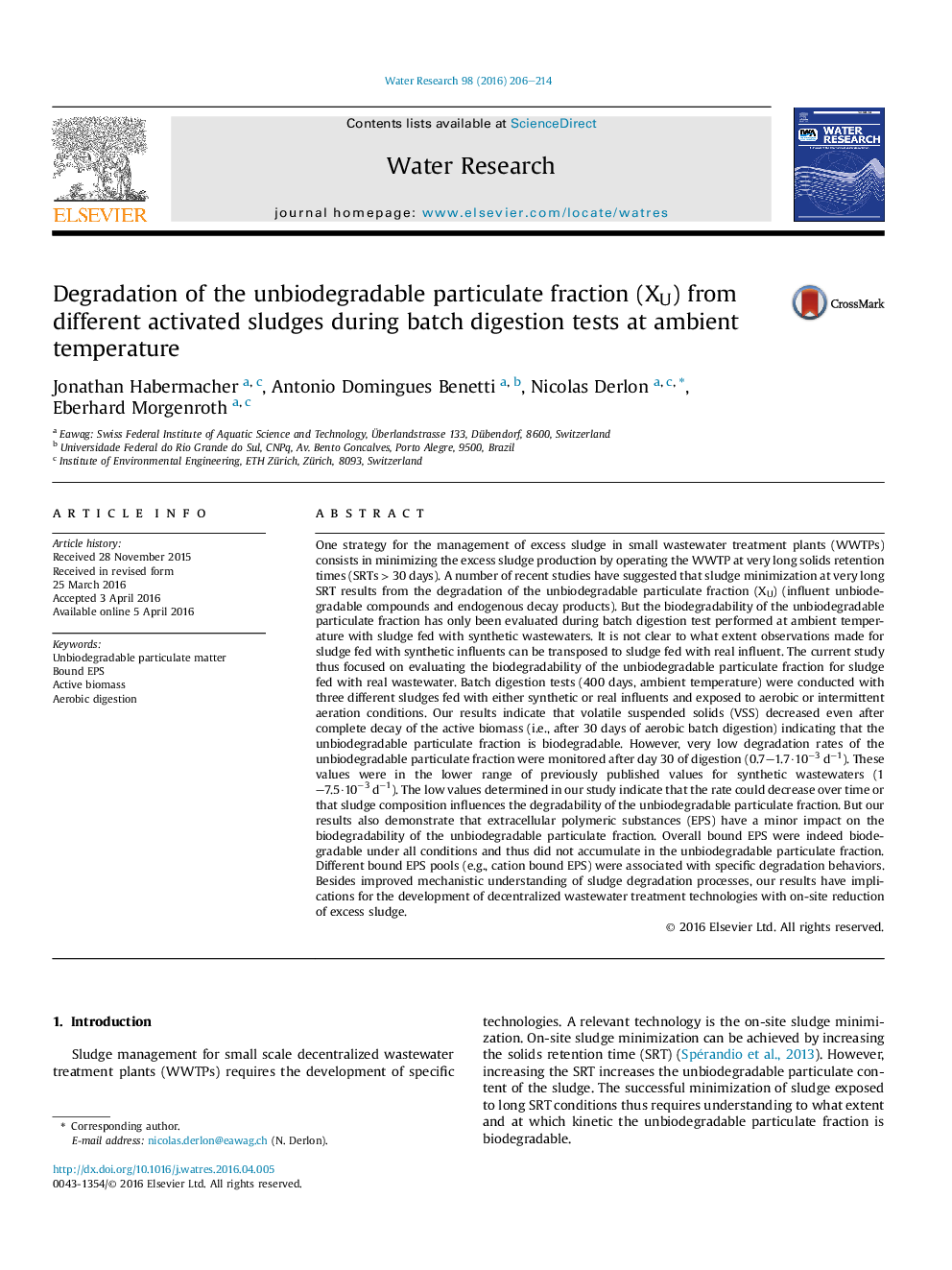| کد مقاله | کد نشریه | سال انتشار | مقاله انگلیسی | نسخه تمام متن |
|---|---|---|---|---|
| 4480986 | 1623070 | 2016 | 9 صفحه PDF | دانلود رایگان |

• Biodegradability of the unbiodegradable particulate fraction (XU) was studied.
• XU produced from real wastewater degraded under conditions relevant for on-site WWT.
• XU degradation rate coefficients (bXU) of 0.7–1.7·10−3 d−1.
• Overall bound EPS are degradable and do not accumulate in XU.
• Cation bound EPS proteins degraded slower than hydrophobic bound EPS proteins.
One strategy for the management of excess sludge in small wastewater treatment plants (WWTPs) consists in minimizing the excess sludge production by operating the WWTP at very long solids retention times (SRTs > 30 days). A number of recent studies have suggested that sludge minimization at very long SRT results from the degradation of the unbiodegradable particulate fraction (XU) (influent unbiodegradable compounds and endogenous decay products). But the biodegradability of the unbiodegradable particulate fraction has only been evaluated during batch digestion test performed at ambient temperature with sludge fed with synthetic wastewaters. It is not clear to what extent observations made for sludge fed with synthetic influents can be transposed to sludge fed with real influent. The current study thus focused on evaluating the biodegradability of the unbiodegradable particulate fraction for sludge fed with real wastewater. Batch digestion tests (400 days, ambient temperature) were conducted with three different sludges fed with either synthetic or real influents and exposed to aerobic or intermittent aeration conditions. Our results indicate that volatile suspended solids (VSS) decreased even after complete decay of the active biomass (i.e., after 30 days of aerobic batch digestion) indicating that the unbiodegradable particulate fraction is biodegradable. However, very low degradation rates of the unbiodegradable particulate fraction were monitored after day 30 of digestion (0.7–1.7·10−3 d−1). These values were in the lower range of previously published values for synthetic wastewaters (1–7.5·10−3 d−1). The low values determined in our study indicate that the rate could decrease over time or that sludge composition influences the degradability of the unbiodegradable particulate fraction. But our results also demonstrate that extracellular polymeric substances (EPS) have a minor impact on the biodegradability of the unbiodegradable particulate fraction. Overall bound EPS were indeed biodegradable under all conditions and thus did not accumulate in the unbiodegradable particulate fraction. Different bound EPS pools (e.g., cation bound EPS) were associated with specific degradation behaviors. Besides improved mechanistic understanding of sludge degradation processes, our results have implications for the development of decentralized wastewater treatment technologies with on-site reduction of excess sludge.
Figure optionsDownload high-quality image (139 K)Download as PowerPoint slide
Journal: Water Research - Volume 98, 1 July 2016, Pages 206–214